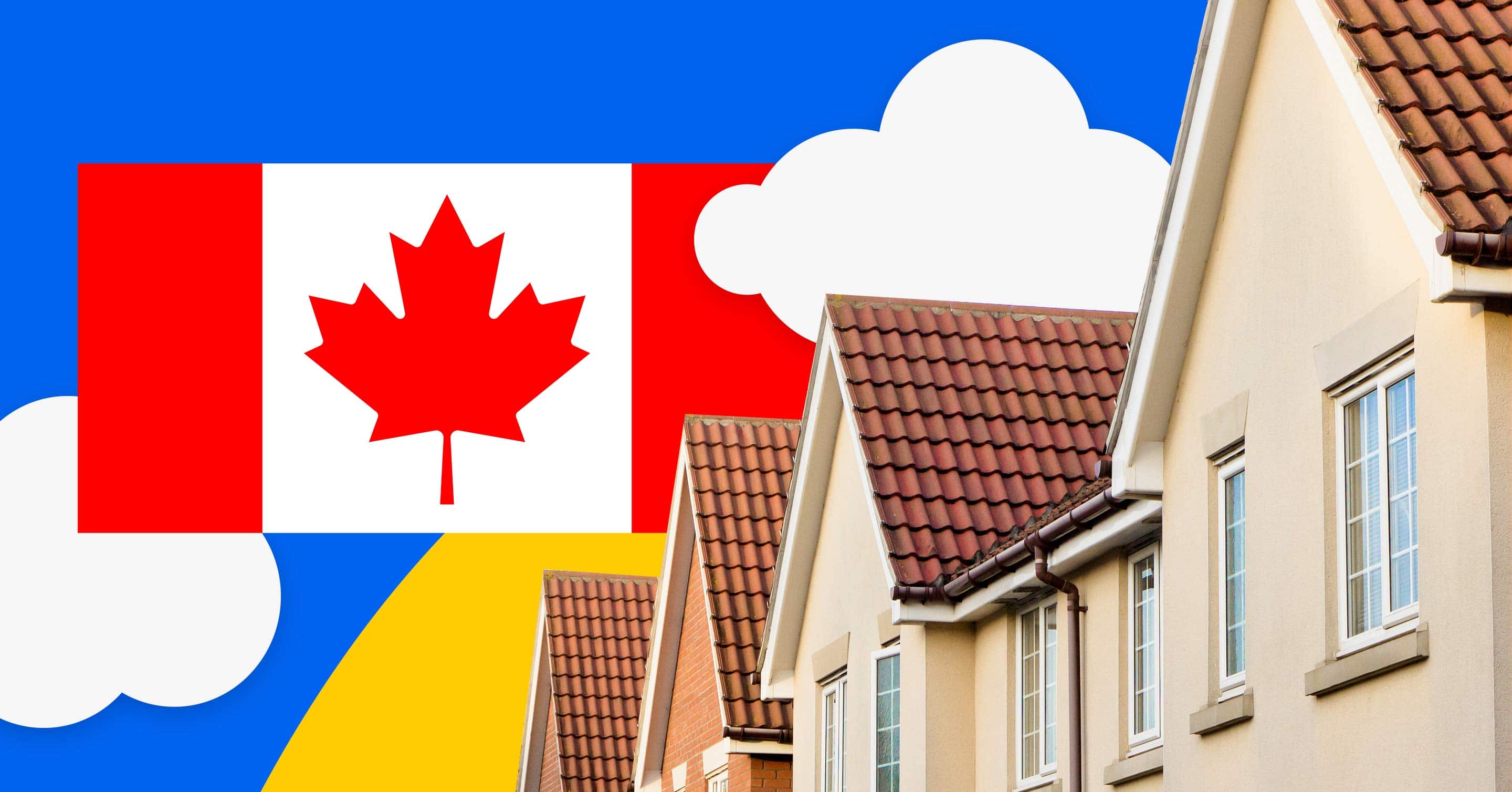2023 Guide On Debt Consolidation Strategies With Expert Insights From Credit Canada

Table of contents
Written by Credit Canada.
Most people have debt — but how do you know if you have too much of it? Sleepless nights are one indicator, though your debt-to-income (DTI) ratio offers more insight.
If your DTI keeps increasing (aka you owe way more than you’re making) it might be time to consider a debt consolidation loan or program.
We’ll walk you through the ins and outs of debt consolidation, the pros and cons, and how to leverage Credit Canada’s free credit counselling service to tackle your debts. The result? You’ll have less debt to worry about, meaning more money to put toward your property down payment and a higher credit score to secure that mortgage.
Key Highlights
- Debt consolidation strategies are used to pay off multiple higher-interest debts like credit card debt or car loans.
- Pros of debt consolidation include peace of mind, streamlined repayment, lower interest rate, quicker debt repayment, and improved credit score down the line.
- Cons of debt consolidation can include stringent approval requirements, higher interest for some borrowers, and the chance of adding even more to your debt plate.
What is Debt Consolidation?
Debt consolidation is a debt repayment strategy where you consolidate multiple debts into a single monthly payment, ideally with a lower interest rate, to tackle mounting debt.
As for the debts to consolidate? We’re not talking about your average car loan or a single credit card.
Debt consolidation is for situations where your debt interest and overall debt are increasing too fast for your income to keep up, even with a solid budget plan. They’re meant to address high-interest loans like multiple credit cards and payday loans, the latter of which can cost borrowers annual percentage rates (APRs) of up to 400%.
Debt Consolidation Strategies
We’ll focus specifically on two types of debt consolidation in this article: debt consolidation loans and debt consolidation programs. We’ll also touch on three other strategies you might want to consider.
Debt Consolidation Loans
A debt consolidation loan (DCL) merges or consolidates multiple debts into one single loan payment. The lender — either a bank, credit union, or private lender — will use the borrower’s credit and income scenario to decide on a suitable interest rate.
“A [debt consolidation] loan is new money, coming from a creditor, that will be used to clear off the existing debts — leaving just the one loan to be paid off, including interest. The pre-existing creditors are all made whole, and the creditor granting the new loan has an expectation of profit from the interest on the loan,” says Richard Haggins, Senior Education Facilitator at Credit Canada.
The best part is the peace of mind. Borrowers won’t have to spend time remembering to pay multiple loan payments on different due dates — instead, everything is merged into one easy payment to streamline repayment.
While people might use lines of credit similarly to pay off multiple loans, a specific debt consolidation loan has an initial negative impact on your credit, more so than a line of credit.
Debt Consolidation Program
Another form of debt consolidation is a debt consolidation program (DCP). While the end goal is the same as a DCL, the process differs.
In a DCP, a debt consolidation agency will work with you to assess your debts and finances and help you craft a repayment strategy you can stick to. Then, the agency will negotiate with your creditors and agree on a monthly payment that works for your budget, often lower than what you’d owe without their intervention.
“They [existing creditors] are taking a substantial haircut — up to 100% on the interest they were hoping to earn,” says Haggins.
Remember, DCPs aren’t loans.
“A debt consolidation program will be done with existing creditors — no new money is entering the picture [like with a DCL], and the existing creditors are not really being made whole,” says Haggins.
The next three strategies can also help to consolidate debt; however, you’ll need a stronger credit score to access two of them, and the first strategy is specific only to credit card debt.
Credit Card Balance Transfer
This form of consolidation helps you minimize high-interest costs on one or more credit cards by transferring the balance(s) to a lower-interest credit card. Some companies offer one-year 0% balance transfer offers that you can take advantage of, but you should always check the APRs and timelines for the 0% offer to ensure the transfer is worthwhile.
Home Equity Loans (HELs) and Lines of Credit (HELOCs)
If you own a home, you could tap into that home’s equity with a home equity loan or line of credit. A lender may approve you for a loan sum equivalent to 80% of the value of appreciation your home has realized. So if you own a house worth $750,000 and you originally bought it for $600,000, your bank might consider you for a home equity loan close to the appreciation value ($150,000).
HELs and HELOCs often have lower interest rates than their debt consolidation counterparts, but you can’t access a HEL without owning a home, of course.
Line of Credit
A line of credit is a revolving, flexible loan that allows you to borrow money and reuse it after paying it back.
Of course, balance transfers, home equity loans, and lines of credit are superior consolidation choices for their lower interest rates and minimal impact on credit. Still, debt consolidation loans and programs are more accessible to people who might not achieve approval for more conventional credit options.
Debt Consolidation Loans: Pros and Cons
Pros:
- One single monthly payment (easier to remember)
- Lower interest rate
- Quicker repayment
- Minimal fees
Cons:
- Strict requirements (co-signer, collateral, or significant income)
- High interest for people with poor credit
- Temptation to get into further debt if you continue to use the accounts you’ve paid off
Debt Consolidation Programs: Pros and Cons
Pros:
- Reduce debt repayment amount (often significantly less interest)
- Support from a professional
- One single payment that is timely and automated
- Quicker repayment
Cons:
- Harsher initial impact on credit
- Initial set-up fee
Find a better rate, and we’ll match it, beat it, or give you $500*.
*Conditions Apply
With nesto, it’s stress-free
Debt Consolidation FAQs
What is the difference between a debt consolidation loan and a debt consolidation program?
A debt consolidation loan is a sum of money lent by a new creditor to pay off a borrower’s existing creditors. This loan merges all other loans into one easy payment, often with a lower interest rate than the otherwise high-interest loans the borrower starts with.
A debt consolidation program isn’t a loan with a new creditor. Instead, it’s a negotiation with your existing creditors through an agency like Credit Canada to limit your repayment responsibilities to an amount that works better for your finances.
Debt consolidation loans result in creditors being paid back, while programs might see creditors only getting back their principal, not all interest.
Does debt consolidation hurt your credit?
Yes, debt consolidation negatively impacts your credit score for a short time. You likely won’t get approved for a mortgage the next day or month after taking out a debt consolidation loan or joining a debt consolidation program. However, after a few months to a year of consistent repayment, debt consolidation can actually improve your credit score in the long run.
How can I get a debt consolidation loan?
You can start by reaching out to a certified credit counsellor to assess your options. Banks, credit unions, and debt consolidation agencies also offer debt consolidation routes.
Final Thoughts – Get Debt Relief with Credit Canada
Debt can feel paralyzing, especially if you have homeownership on your list of financial goals. Not only does it take away from your down payment savings; it also hurts your chances of mortgage approval. But you don’t have to tackle your debts alone.
Credit Canada’s certified credit counsellors help hundreds of Canadians every day to resolve their debts so they can get back to enjoying life.
Talk to a credit counsellor today.
Ready to get started?
In just a few clicks, you can see our current rates. Then apply for your mortgage online in minutes!















